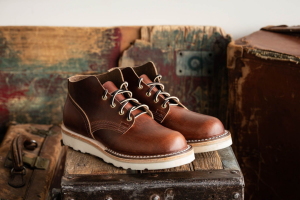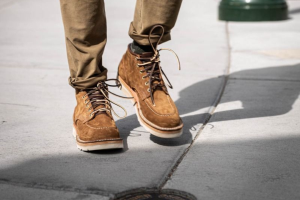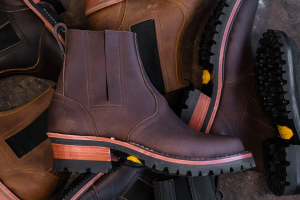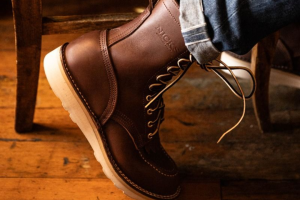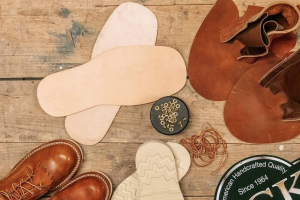Wearing Work Boots All Day Or Every Day
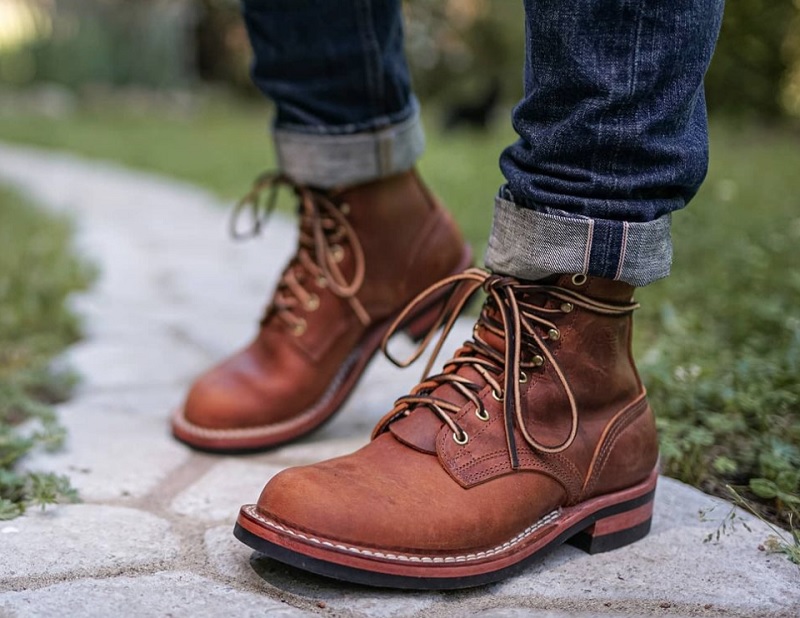
There is no drawback to wearing work boots or any type of footwear all day, every day IF those work boots or shoes - or whatever they might be - fit you correctly.
In other words, a pair of work boots that are ergonomically correct for you and your feet, you can wear them all day, every day without issues. If you have support where you need it, and your feet are allowed to flex where they need to, nothing bad will happen.
IF, that is, you're wearing properly made and properly fit boots or shoes. Those that aren't made well, and don't fit you correctly, are the ones that will give you problems.
Why is that? Let's talk about that a bit more.
Support And Shock Absorption In Work Boots
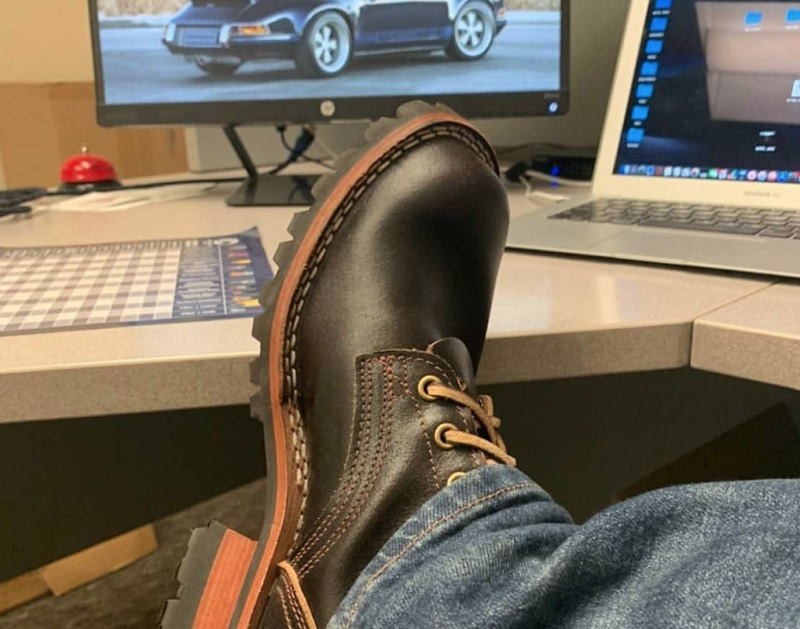
What good work boots are supposed to do for your feet is put material in key places so that your feet are protected from impact as you walk and do things.
The most critical area is in the heel.
If you're going to wear heavier footwear - which you have to in many trades - you have to have enough material under the heel so the force of impact isn't transmitted into the heel.
You need a boot design as well as material that's dense but also has enough flex in it to keep the foot from being subjected to repeated vibration and impact forces. That's why work boots usually have a heel block of hard rubber, sometimes with a number of risers made of vegetable tanned leather.
The heel takes most of the impact of walking. In a natural stride, the heel strikes while the foot is rolling forward. The ball of the foot doesn't take as much impact and then pushes off into the next step.
What work boots are supposed to do is reduce the force that the heel will absorb, which requires good materials and solid construction to do.
Cheap work boots and most shoes you'll buy in stores are made so that they're sturdy enough without being too costly. In other words, they're made to take less of a beating than higher-quality work boots.
Ever get a pair of boots that feel great at first, but after a few months you start to notice sore feet? That's because they're made to take less punishment than you're putting them through.
Foot fatigue and impact injuries tend to be what you'll notice like a bruised heel. Hairline fractures can even occur from repeated blows to the feet due to unsupportive footwear.
Poor Quality Work Boots Don't Offer The Right Support In The Arch
Another critical area where many work boots fall short of what they're supposed to do is when it comes to the arch of the foot.
The arch is the "spring" of the foot, compressing and expanding so you push off with the ball of the foot correctly. Insufficient arch support is also the cause of most issues caused by poor-fitting footwear.
A foot that has a perfect arch will land perfectly flat when you walk. However, very few people have a truly neutral arch; most people's arch is a little too high or a little too low.
That causes the foot to compensate by rotating slightly out due to a high arch (also called supination or underpronation) or inward if their arch is a little too flat, also called overpronation.
Underpronation and supination of the foot can lead to a number of issues over time, such as plantar fasciitis (aka policeman's heel) as well as lower leg, knee, hip and back issues.
This leads some people to wear "barefoot" style shoes to get their feet to compensate, but this isn't an option for people who don't drive a desk for a living. This requires the addition of insoles (orthotic or otherwise) for work boots so they offer the proper support for the arch.
Wearing work boots that don't have enough arch support or too much material in the arch - and therefore don't fit your feet correctly so they can function - will cause your feet to get fatigued and can eventually lead to injuries.
Work Boots With Poor Footbeds Lack Comfort
Another aspect of work boot design that causes discomfort with extended wear is the footbed. This is the structure between the sole and the insole.
Work boots that are made for the long haul...take some time to break in. They'll feel a bit hard at first, and you probably won't be able to wear them all day without discomfort.
The reason for that is the footbed has to basically be beaten into shape. If we showed you the insole of a well-worn pair of our boots, you'd see the footbed had a footprint. This is the owner's foot, pressing the shape into the insole and footbed.
It takes the shape of your feet...and then holds it. Eventually your big, heavy work boots feel like a pair of memory foam slippers.
Constructing a footbed like this requires multiple layers of durable material, like vegetable-tanned leather instead of a simple cork footbed, which is what most of the work boot industry uses.
It's not that the product is bad, but it's that it isn't made to last. Cork footbeds eventually compress to the point that they crumble. Foam eventually compresses to the point that it's smashed flat and not supportive.
In other words, work boots with a solid footbed take your foot's shape and still support it after months of hard use. Work boots of lesser construction are made that way for cost reasons or because "that's how it's always been done" and eventually stop offering that comfort and support.
Ever notice your feet start feeling sore after wearing a pair of work boots for a few months? That's the footbed losing structural integrity.
You Can Wear Work Boots Every Day...If They're Made Right
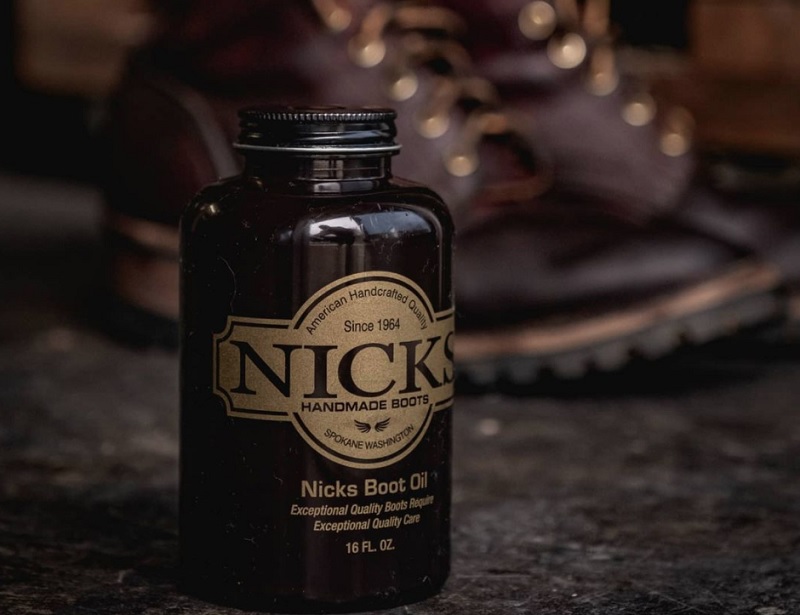
You can absolutely wear work boots every day when they're made right.
When work boots offer you the support you need so your feet are protected where they need to be, supported correctly so your feet work the way they're supposed to, and you have the support and comfort you should have in a pair of practical boots...there's no reason NOT to.
But...when you have a pair of work boots that let your feet take punishment they don't have to, that aren't correct for your feet anatomically, and just otherwise don't support your feet like they should?
You're going to have problems. Fatigue. Discomfort. Pain. Eventually, you might have injuries.
Think about this for a second: the sport that produces the greatest number of injuries for the greatest number of athletes who play it isn't a rough sport like football or hockey. It's actually basketball.
Except basketball players don't deal with catastrophic injuries like concussions or separated shoulders. They have niggling injuries like ankle issues, toe issues and so on; it's from being on their feet, pounding up and down the court for hours at a time.
People who do hard work on their feet all day, every day, can get a lot of the same kinds of injuries. Nothing catastrophic, but just enough to make them miserable.
And guess what produces a lot of them? It's actually having the wrong footwear for their feet. So why not invest in your health, safety and comfort?


